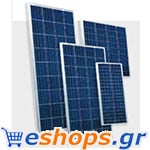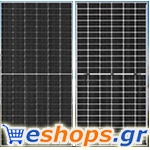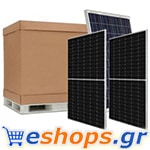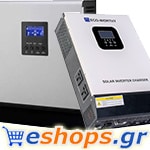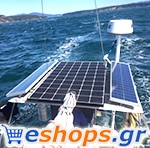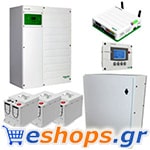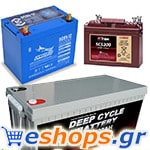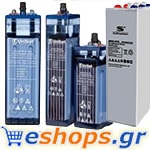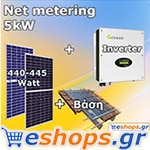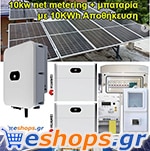Energy Saving with Net Metering
PHOTOVOLTAICS: NET-METERING SIGNATURE - THE SETTLEMENT IN DETAIL
Energy Saving with Net Metering: Signed yesterday, December 31, by the Deputy Minister of PEKA, Maki Papageorgiou, the Ministerial Decision (which is issued by authorization of Subparagraph M.8 of Paragraph M of article one of law 4254/2014) concerning self-generating electricity with energy offset from photovoltaic systems.
YPEKA supports the installation of self-generation systems through a program of installation of photovoltaic systems by self-producers to cover their own needs, with the application of energy offset (NET-metering) and its utilization in order to reduce the energy costs of electricity consumers. Self-producers are expected to have significant economic benefit, while at the same time promoting the main goal of the policy of YPEKA for energy security, efficiency and energy saving.
With the implementation of this Decision, the self-production of energy from photovoltaic systems becomes more attractive and the net metering is introduced for the first time.
Specifically, the Energy Saving Decision with Net Metering provides the following:
* Medium and Low Voltage Self-Production.
* Refers only to photovoltaic systems.
* THE maximum allowable power is 20 KW or if it is more than 20 KW the power can be up to 50% of the agreed power consumption of the supply.
* Limits vary for Unconnected System with maximum power for the Non-Interconnected Islands at 20KW while for Crete at 50KW.
* For bodies that perform public benefit work under the conditions defined by the Law, the CA allows the utilization of the entire agreed power consumption of the supply.
* Self-production installation can be done by anyone in the places that are allowed according to the provisions of the law. (ie not limited to roofs)
* Autoproducers will pay ETMEAR only for the electricity they totally absorb from the Grid or the System.
* The energy offset will be made annually in the electricity bill of the autoproducer.
Referring to the issue, the Minister of PEKA, Giannis Maniatis, pointed out: «With this Ministerial decision we open a new big road in energy saving issues and uses of Renewable Sources. The big step was taken with the recent legislative regulation of Law 4254/2014, with which we opened this new market in a pioneering way.
We create new jobs in the RES sector and we contribute decisively to the reduction of energy costs for every Greek household. Above all, however, our major intervention concerns the reduction of energy costs that can be made in the agricultural sector, where especially for Land Improvement Organizations we provide actions that reduce the cost of production of agricultural products throughout the country, give competitiveness to our agricultural products and reward the efforts of the Greek farmer.
At the same time, we support the development engine of our country, which is Tourism, by drastically reducing the energy costs that can now exist in all hotel units and rooms for rent in the country. Last but not least, the maximum production limits apply to Public Benefit Organizations and Legal Entities, Public or Private law, that serve the Society. "This will allow hundreds of Hospitals and Institutions of Care and Social Solidarity of our fellow human beings to significantly reduce their annual operating costs, in order to improve the services provided for the benefit of the Greek citizen."
As stated by the Deputy Minister of PEKA, Makis Papageorgiou: «Today's Decision is an important step for the strengthening of self-production, but also the stimulation of the RES sector as a whole.
With the introduction of net metering, it is possible for many consumers, small and large, households and medium or large companies to significantly reduce their energy costs. At the same time, the local economies are given a boost with this immediate solution for the development of small photovoltaics with great benefit, but without burdening the other consumers ".
It is pointed out that, YPEKA recently promoted the regulation vote for maximum installed power limit per system that will be included in the self-production program. More specifically, the seventh article of Law 4296/2014 provides that ceilings can be set, differentiated by category of producers, with a maximum limit of 500kW. It is also provided that the maximum limits will apply to legal entities under public or private law that pursue public or other public interest purposes of general or local scope.
More specifically, according to the Ministerial Decision, the power of each photovoltaic system can be up to 20 kWp in the Interconnected System or up to 50% of the agreed power consumption, if this value is higher than the above limit of 20 kWp, with a maximum limit of 500kW. For Unconnected Islands (MDNs), due to the relatively limited margin for purely technical reasons, the limits are differentiated so that more consumers can join the program.
Especially for Legal Entities, Public or Private Law, that pursue public benefit or other purposes of Public interest, general or local scope, the maximum power of each photovoltaic system can be up to 100% of the agreed power consumption, with a maximum of 500kW in the Interconnected System. The above regulation makes it possible to install power systems equal to the agreed supply power from GOEB and TOEB, as well as Universities.
Finally, it is pointed out that according to the Ministerial Decision, photovoltaic systems can be installed both landlords and tenants, while the forecast for annual offset time of the produced with the consumed by the self-produced is particularly beneficial
If you want to take advantage of energy savings with Net Metering contact with us.
